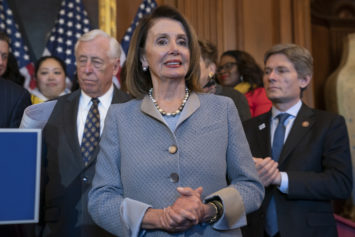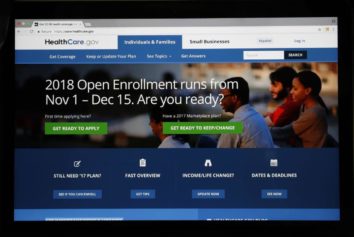
The national arts-and-crafts chain of 500 stores brought its case to the U.S. Supreme Court as a for-profit corporation, citing religious objections, to possibly deny this coverage to its 13,000 employees.
In enacting the Affordable Care Act, Congress required large employers to provide basic preventive care for employees. This includes all contraceptive methods approved by the Food and Drug Administration.
Religious nonprofits were exempted from this requirement. For-profit corporations were not — until the Supreme Court ruled in favor of the plaintiff in a 5-4 decision June 30. This decision, which weakens the ACA’s main goal of providing health care for everyone, just took a step back on women’s health.
And there are at least 82 other companies that are challenging the Affordable Care Act’s birth control mandate. Women of color, who tend to have less access to health care, will feel this impact in a greater fashion.
The female clergy members of People for the American Way Foundation’s African American Ministers Leadership Council released a statement on how they felt about employers being able to dictate women’s health decisions:
“As faith leaders, we are deeply concerned about the distortion of the concept of religious liberty in today’s decision. Allowing corporations to infringe on the rights of their employees in the name of religious freedom is not what our Constitution’s framers had in mind, and it’s not in line with our values as Americans.”
The cost of birth control, which isn’t always used to prevent pregnancies, can cost several hundred dollars a year. Conditions such as severe menstrual symptoms, polycystic ovary syndrome and endometriosis are managed with contraceptives, and women may have to choose between paying the bills and staying healthy — this is an economic reality for Black women.
According to Miriam Zoila Pérez from the Colorlines.com, when it comes to unplanned pregnancies, Black women are four times more likely to die during childbirth than white women. Mortality rates among black infants are also higher, along with premature birth and low-birth rates.
The use of contraceptives is also high in the community. GaryCrusader.com reports that 83 percent of Black women between the ages 15 and 44 with childbearing potential use contraception, while 78 percent of Black women have used birth control pills at some point in their lives. And in 2011, more than half of Black Americans were covered by employer-sponsored health insurance.
Though it is too early to tell how the court’s decision will impact Americans and their health care in the long term, for African-Americans, the politics of health care can be a lifeline or death sentence.
S.C. Rhyne is a blogger and novelist in New York City. Follow the author on Twitter @ReporterandGirl, http://Facebook.com/

